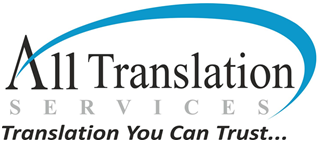Is your Business Ready for the Canadian Market?
___Expanding a business into new territories can be an exciting endeavor, but it comes with its own set of challenges and considerations.
Looking for a document translation service provider for Indonesian, Italian, Japanese, Kannada, Khmer, Korean or in Malayalam language? Our Toronto translation company will be happy to help you.
When setting your sights on the Canadian market, there’s more to consider than just products and services. Understanding language regulations is a crucial aspect that can significantly impact your success in this diverse and multilingual market.
Why Language Regulations Matter?
Canada boasts a rich tapestry of cultures and languages, with English and French as its official languages. However, the linguistic landscape in Canada is much more complex. Bilingualism is prominent in certain regions, while other areas exhibit strong cultural and linguistic diversity, presenting both challenges and opportunities for businesses.
The Official Languages Act
In Canada, the Official Languages Act dictates certain language requirements for businesses operating in specific provinces or dealing with government entities. This act mandates the use of English and French in federal institutions and organizations. Understanding the linguistic rights and obligations under this act is crucial for businesses aiming to establish a presence in the Canadian market.
Regional Language Preferences
While English and French are the official languages, regional nuances in language preference are essential to comprehend. For instance, Quebec predominantly speaks French, making it crucial for businesses targeting this province to consider bilingual marketing and support materials. In regions like British Columbia and Ontario, multiculturalism calls for a more diverse approach that caters to multiple languages and cultural nuances.
Impact on Marketing and Customer Engagement
Language regulations directly influence marketing strategies and customer engagement. Being aware of language preferences and complying with regional language regulations enables businesses to resonate more effectively with their target audience. Multilingual advertising and customer support not only cater to diverse communities but also reflect a commitment to inclusivity and respect for cultural differences.
Practical Steps for Compliance
For businesses eyeing the Canadian market, it’s essential to take proactive steps to ensure compliance with language regulations.
This includes:
Thorough Research: Understand linguistic preferences and regulations in the specific regions you intend to operate in.
Translation Services: Invest in high-quality translation services to effectively communicate with diverse audiences.
Bilingual Staffing: Consider hiring bilingual or multilingual staff to better serve customers.
Conclusion
Expanding your business into the Canadian market requires a keen understanding of language regulations and the linguistic landscape. Adhering to these regulations and acknowledging the diverse linguistic preferences across regions can significantly impact the success of your business venture.
In summary, businesses that recognize and adapt to Canada’s linguistic diversity are better positioned to establish rapport with the local population, foster stronger customer relationships, and ultimately thrive in this dynamic and multicultural market.
